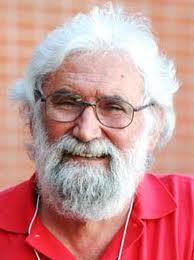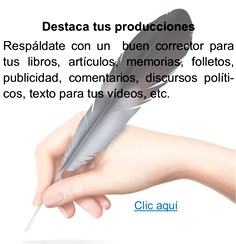 por Leonardo Boff
por Leonardo Boff
No nos equivocamos si entendemos la tragedia actual de la humanidad, incapaz de explicar sus crisis y de proyectar un aura de esperanza, como el fracaso del tipo de razón predominante en los últimos quinientos años. Ya hemos analizado en estas páginas cómo se realizó desde entonces la ruptura entre la razón objetiva (la lógica de las cosas) y la razón subjetiva (los intereses del yo). Ésta se impuso a aquella hasta el punto de instaurarse como la fuerza exclusiva de organización de la sociedad y de la historia.
Esta razón subjetiva se entendió como voluntad de poder y poder como dominación sobre personas y cosas. Ahora la centralidad está ocupada por el poder del «yo», portador exclusivo de razón y de proyecto. Él gestó lo que le es connatural: el individualismo como reafirmación suprema del «yo». Éste ganó cuerpo en el capitalismo, cuyo motor es la acumulación individual sin ninguna otra consideración social o ecológica. Fue una decisión cultural altamente arriesgada la de confiar exclusivamente a la razón subjetiva la estructuración de toda la realidad. Esto ha implicado una verdadera dictadura de la razón que ha intensificado o destruido otras formas de ejercicio de la razón como la razón sensible, simbólica y otras.
El ideal que el «yo» va a perseguir irrefrenablemente será el de un progreso ilimitado, en el supuesto incuestionable de que los recursos de la Tierra son también ilimitados. Lo infinito del progreso y lo infinito de los recursos constituirán el a priori ontológico y el parti pris.
Pero he aquí que después de quinientos años, nos hemos dado cuenta de que ambos infinitos son ilusorios. La Tierra es pequeña y finita. El progreso ha tocado los límites de la Tierra. No hay modo de sobrepasarlos. Ahora ha comenzado el tiempo del mundo finito. No respetar esta finitud implica inhibir la capacidad de reproducción de la vida en la Tierra y con esto poner en peligro la supervivencia de la especie. El tiempo histórico del capitalismo se ha cumplido. Llevarlo adelante costará tanto que acabará por destruir la sociabilidad y el futuro. De persistir en ese intento, se evidenciará el carácter destructivo de la irracionalidad de la razón.
Lo más grave es que el capitalismo/individualismo ha introducido dos lógicas que están en conflicto: la de los intereses privados de los «yos», de las empresas, y la de los intereses colectivos del «nosotros», de la sociedad. El capitalismo es, por naturaleza, antidemocrático. No es nada cooperativo y es sólo competitivo.
¿Tendremos alguna salida? Con solo reformas y regulaciones, manteniendo el sistema, como quieren entre nosotros los neokeynesianos al estilo de Stiglitz, Krugman y otros, no. Tenemos que cambiar si queremos salvarnos.
En primer lugar, es importante construir un nuevo acuerdo entre la razón objetiva y la subjetiva. Esto implica ampliar la razón y así liberarla del yugo de ser instrumento del poder-dominación. Ella puede ser razón emancipatoria. Para el nuevo acuerdo, urge rescatar la razón sensible y cordial para conjugarla con la razón instrumental. Aquella se ancla en el cerebro límbico surgido have más de doscientos millones de años, cuando, con los mamíferos, irrumpió el afecto, la pasión, el cuidado, el amor y el mundo de los valores. Ella nos permite hacer una lectura emocional y valorativa de los datos científicos de la razón instrumental, que emergió en el neocórtex have solamente 5-7 millones de años. Esta razón sensible despierta en nosotros el reencantamiento necesario por la vida y por la madre-Tierra, a fin de cuidar de ellas.
Luego se impone una nueva centralidad: no más el interés privado sino el interés común, el respeto a los bienes comunes de la vida y de la Tierra destinados a todos. Después la economía necesita volver a ser aquello que por naturaleza es: garantía de las condiciones de la vida física, cultural y espiritual de todas las personas. A continuación, la política deberá construirse sobre una democracia sin fin, cotidiana e inclusiva de todos los seres humanos para que sean sujetos de la historia y no meros asistentes o beneficiarios. Por último, un nuevo mundo no tendrá rostro humano si no se rige por valores ético-espirituales compartidos, basados en la contribución de las muchas culturas junto con la tradición judeocristiana.
Todos estos pasos tienen mucho de utópico. Pero sin la utopía nos hundiríamos en el pantano de los intereses privados y corporativos. Felizmente, por todas partes repuntan ensayos anticipadores de lo nuevo, como la economía solidaria, la sostenibilidad y el cuidado vividos como paradigmas de perpetuación y de reproducción de todo lo que existe y vive. No renunciamos al anhelo ancestral de la comensalidad: todos comiendo y bebiendo juntos como hermanos y hermanas en casa.
Wounded Heart: the irrationality of reason
Leonardo Boff
Theologian
Earthcharter Commission
We are not mistaken if we understand the present tragedy of humanity, incapable of explaining its crisis and of projecting an aura of hope, as a failure of the type of reason that has been predominant for the past five hundred years. We have already analyzed how the break between objective reason (the logic of things) and subjective reason (self interest) has occurred. The latter was imposed on the former, to the point that it was established as the exclusive force for organizing society, and history.
Thus subjective reason was understood as a desire for power, and power as domination over people and things. Today, the power of «I» is central. It is the exclusive carrier of reason and meaning. It spawned what naturally follows: individualism as the supreme affirmation of the «I». It took shape in capitalism, which is powered by individual accumulation, with no social or ecological considerations. Trusting subjective reason alone as the framework for all of reality was a high risk cultural decision. It has implied a true dictatorship of reason that has diminished or destroyed the exercise of other forms of reason, such as sensible, symbolic and others.
The ideal is that the «I» will endlessly seek unlimited progress, in the unquestioned supposition that the resources of the Earth are also limitless. The infinite nature of progress and of resources constitute the ontological a priori and the parti pris.
But, after five hundred years, we have come to see that both infinities are illusory. The Earth is small and finite. Progress has approached the limits of the Earth. Those limits cannot be exceeded. The time of the finite world is here now. Failing to respect this finitude means inhibiting the capacity for reproducing life on Earth, and thus endangering the survival of the species. The historic time of capitalism has passed. To continue with capitalism will cost so much that it will end up destroying sociability and the future. Persisting in that effort will reveal the destructive character of the irrationality of reason.
What is even more serious is that capitalism/individualism has introduced two conflicting forms of logic: the logic of the private interests of the «I», the enterprises, and the logic of the collective interests of the «we», of society. Capitalism, by its nature, is anti-democratic. It is not at all cooperative, but is only competitive.
Will there be a way out? With reforms and regulations designed only to maintain the system, as Neo-Keynesians in the style of Stiglitz, Krugman and others want, no. We must change if we want to save ourselves.
In the first place, it is important to build a new accord between objective and subjective reason. This implies broadening reason, and thus freeing her from the yoke of power-domination. She can be emancipating reason. For the new accord, it is urgent that we rescue sensible and cordial reason, to blend them with instrumental reason. It is based in the limbic brain that appeared more than two hundred million years ago, when, with the mammals, affection, passion, caring, love and the world of values came into being. This allows us to give an emotional and value-filled reading of the scientific data that comes from instrumental reason, that emerged only 5 to 7 million years ago. This sensible reason awakens in us the necessary re-enchantment for life and for Mother Earth, so that we may care for them.
Then a new centrality must arise: instead of the private interest, the common interest, respect for the goods common to life and to the Earth, destined to all. Then, economics needs to return to being that which it naturally is: a guarantee of the conditions needed for the physical, cultural and spiritual life of all persons. After that, politics must be rebuilt, as an endless democracy, always inclusive of all humans, so that they may be the subjects of history and not merely attendants or beneficiaries. Finally, the new world will not have a human face unless it is governed by shared ethical-spiritual values, with contributions from many other cultures, together with the Judeo-Christian tradition.
These steps are all very utopian. But without utopia we would drown in the swamp of private and corporative interests. Happily, essays are appearing everywhere that are forerunners of the new, such as solidarian economy, sustainability and caring, lived as paradigms to perpetuate and to reproduce all that exists and lives. We do not renounce the ancestral longing for fellowship: everyone eating and drinking together, as brothers and sisters, at home.
Leonardo Boff
Free translation from the Spanish by
Servicios Koinonia, http://www.servicioskoinonia.org.
Done at REFUGIO DEL RIO GRANDE, Texas, EE.UU.

